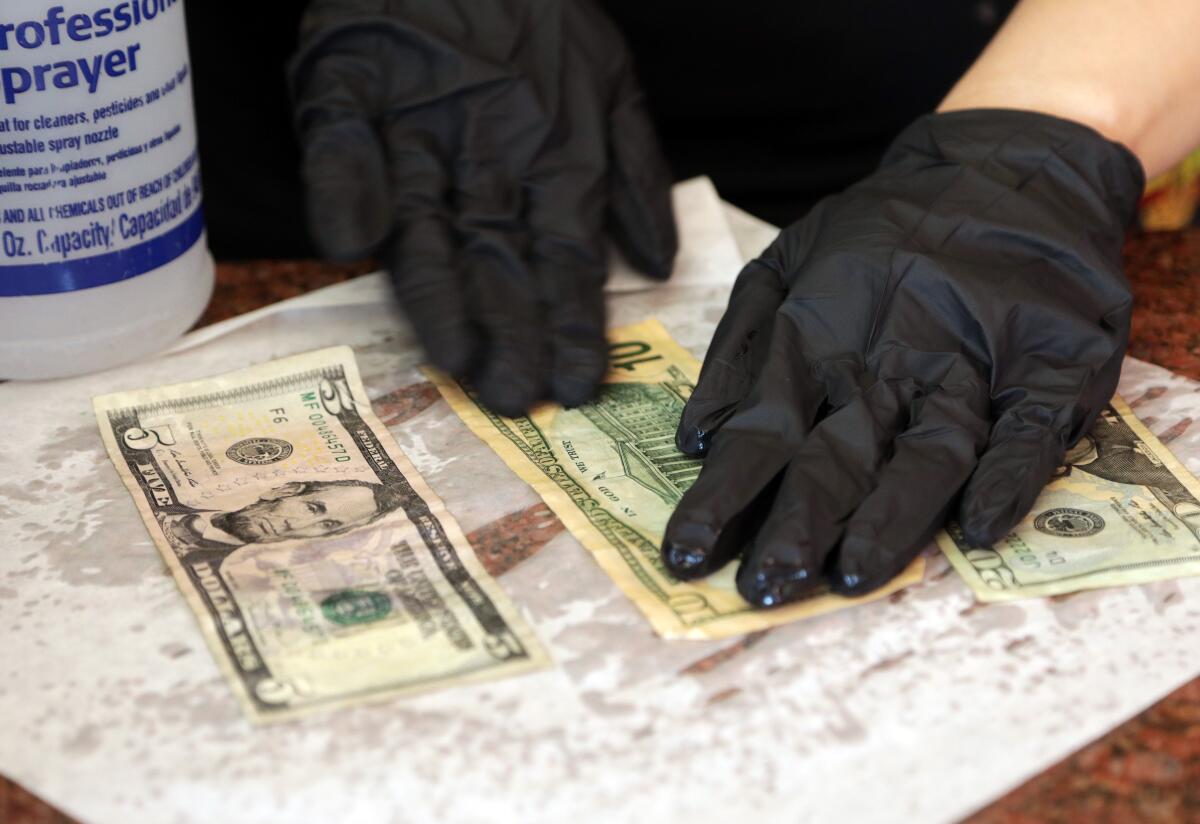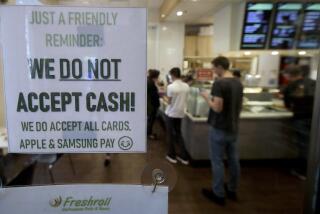Letters to the Editor: Canada has plastic money. We should too in the coronavirus era

- Share via
To the editor: There is an evidence-based report on contaminated paper money. (“In a pandemic, no one wants to touch it. Why cash has become the new Typhoid Mary,” May 22)
In 2014, New York University’s Dirty Money Project identified 3,000 different bacterial species, viruses and fungi on 80 one-dollar bills, including the pathogens MRSA, H. pylori (cause of infectious gastritis), toxigenic E. coli and diphtheria.
The cotton blend of “paper” money is a natural incubator for organisms. Other countries, including Canada, have switched to less adherent plastic polymer film, which might harbor fewer organisms and is more easily laundered.
Do we need an evidence-based study to document COVID-19 on the dollar bills? I think not. Rather, we need a “paper” money change. Paper or plastic must become plastic and plastic.
Coinage is another issue; maybe the end of pennies and nickels is nigh. In the era of COVID-19, we are playing catch-up.
Jerome P. Helman, MD, Venice
..
To the editor: As one who uses cash on a regular basis, I found your article on some retailers shunning paper money interesting yet lacking in key reasons why so many continue to rely on it.
In particular, one of the significant advantages of using cash is the fact that when the transaction is completed, there are no future issues or bills to pay. Furthermore, no one is extracting information on who bought what that ends up in some marketing database to be exploited later.
While these may be rare concerns today, privacy and finality are still important to many.
Don Bullock, Encinitas
More to Read
A cure for the common opinion
Get thought-provoking perspectives with our weekly newsletter.
You may occasionally receive promotional content from the Los Angeles Times.






